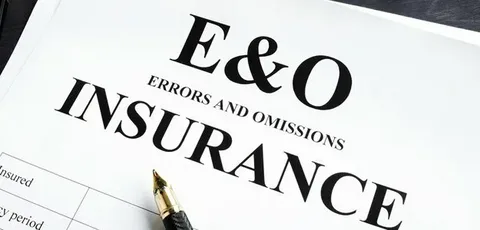The Ultimate Guide to Notary E&O Insurance: Everything You Need to Know
Introduction
Notary Errors and Omissions (E&O) Insurance might sound like a mouthful, but it’s a crucial safety net for notaries. Whether you’re a seasoned notary or just starting out, understanding E&O insurance can save you from potential legal and financial headaches. In this comprehensive guide, we’ll dive deep into what notary E&O insurance is, why you need it, and how to choose the best coverage. And don’t worry, we’ll sprinkle in some humor to keep things light!

What is Notary E&O Insurance?
Notary E&O insurance, also known as professional liability insurance, protects notaries from claims of negligence, errors, or omissions made while performing their duties. Imagine notarizing a document and accidentally missing a crucial detail. Without E&O insurance, you could be held personally liable for any resulting damages. With it, you’re covered!
For more detailed information, check out The Hartford’s guide on notary E&O insurance.
Why Do You Need Notary E&O Insurance?
- Legal Protection: Mistakes happen. E&O insurance covers legal fees, court costs, and settlements if you’re sued for an error or omission.
- Financial Security: Lawsuits can be expensive. E&O insurance ensures you don’t have to pay out of pocket.
- Professional Credibility: Having E&O insurance shows clients you’re serious about your profession and their protection.
For a deeper dive into why E&O insurance is essential, visit Notaries.com.
Differences Between E&O Insurance and Surety Bonds
Many notaries confuse E&O insurance with surety bonds. While both are important, they serve different purposes:
- Surety Bonds: Protect the public from notary errors. If a client suffers a loss due to your mistake, the bond pays them, and you reimburse the bond company.
- E&O Insurance: Protects you, the notary, from financial loss due to errors or omissions.

For more on this topic, see Notary.net’s FAQs.
Common Scenarios Covered by E&O Insurance
- Negligence: Failing to identify a signer properly.
- Errors: Missing a crucial detail in a document.
- Omissions: Forgetting to include necessary information.
Choosing the Right E&O Insurance
When selecting E&O insurance, consider the following:
- Coverage Limits: Ensure the policy covers potential legal fees and settlements.
- Exclusions: Understand what isn’t covered, such as intentional wrongdoing.
- Premiums: Compare costs to find a policy that fits your budget.
Humorous Anecdote
Imagine notarizing a document for a celebrity and accidentally notarizing their grocery list instead. Oops! With E&O insurance, you’d be covered for that blunder.

Conclusion
Notary E&O insurance is a must-have for any notary. It provides peace of mind, financial security, and professional credibility. So, don’t wait—get covered today!
For more information and to get a quote, visit The Hartford.
I hope this guide helps you understand the importance of notary E&O insurance. If you have any questions or need further assistance, feel free to ask!
Leave a Reply